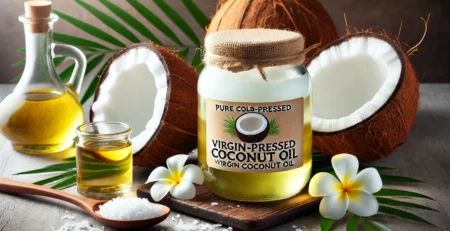The Ultimate Guide to Cold Pressed Sesame Seed Oil: Benefits, Uses, and Production
The Ultimate Guide to Cold Pressed Sesame Seed Oil: Benefits, Uses, and Production
Introduction
Cold pressed sesame seed oil has been a staple in many cultures for centuries, revered for its rich nutritional profile and therapeutic benefits. Known as “Queen of Oils,” sesame oil has played a significant role in both culinary and medicinal practices across Asia, Africa, and the Mediterranean. Extracted from raw sesame seeds using a cold pressing method, this oil retains most of its natural nutrients, making it one of the healthiest and most versatile oils available today.
In this comprehensive guide, we will explore everything about cold pressed sesame seed oil—from its extraction process, benefits, and uses in cooking and skincare, to its historical significance and health-promoting properties. Whether you’re looking for a nutritious cooking oil or a natural skincare remedy, cold pressed sesame seed oil has a lot to offer.
What is Cold Pressed Sesame Seed Oil?
Cold pressed sesame seed oil is derived from sesame seeds through a mechanical pressing process, without the use of heat or chemical solvents. The cold pressing method preserves the natural antioxidants, vitamins, and essential fatty acids in the oil, making it much more beneficial than refined oils that undergo heat treatment.
1. Cold Pressing Process
Cold pressing is a traditional method of extracting oil that dates back thousands of years. In this process, sesame seeds are cleaned, roasted lightly to enhance flavor, and then mechanically pressed to extract oil. Unlike refined oils, no external heat is applied during the pressing process, which helps retain the integrity of the oil’s nutrients. The temperature is kept below 120°F (49°C) throughout, preventing the breakdown of sensitive compounds.
Cold pressed sesame oil retains its golden-brown color and rich nutty flavor, as well as its potent health properties such as antioxidants, phytosterols, and polyunsaturated fatty acids.
2. Varieties of Sesame Oil
There are two main types of sesame oil:
- Light Sesame Oil: Extracted from raw sesame seeds and used for its mild flavor and higher nutritional value.
- Dark Sesame Oil: Extracted from toasted sesame seeds, with a stronger flavor and commonly used in Asian cuisine for added depth in dishes.
Cold pressed sesame oil is generally a light, golden-brown oil, and its flavor can vary based on the degree of roasting before pressing.
Nutritional Profile of Cold Pressed Sesame Seed Oil
Cold pressed sesame oil is a nutrient powerhouse, packed with essential vitamins, minerals, and fatty acids that offer numerous health benefits. Its high content of antioxidants like sesamol and sesaminol makes it an anti-inflammatory and anti-aging agent.
1. Rich in Healthy Fats
Sesame oil contains a healthy balance of omega-3, omega-6, and omega-9 fatty acids, which are vital for heart health, brain function, and skin hydration.
- Polyunsaturated fats (PUFAs): These include omega-6 fatty acids, which help reduce bad cholesterol (LDL) and promote cardiovascular health.
- Monounsaturated fats (MUFAs): These help lower bad cholesterol while increasing good cholesterol (HDL).
- Saturated fats: While sesame oil contains some saturated fats, they are in moderation and contribute to the oil’s stability for cooking.
2. High in Antioxidants
One of the standout properties of cold pressed sesame oil is its high antioxidant content, primarily due to compounds like sesamol, sesaminol, and lignans. These antioxidants play a crucial role in neutralizing free radicals in the body, reducing oxidative stress, and lowering the risk of chronic diseases such as heart disease and cancer.
3. Vitamins and Minerals
Cold pressed sesame oil is also rich in fat-soluble vitamins such as:
- Vitamin E: A powerful antioxidant that promotes skin health, fights inflammation, and boosts immunity.
- Vitamin K: Important for bone health and blood clotting.
Additionally, sesame oil contains trace minerals such as zinc, magnesium, and copper, which are essential for various physiological processes.
Health Benefits of Cold Pressed Sesame Seed Oil
Sesame oil’s benefits extend far beyond the kitchen. Its rich nutritional composition makes it a popular remedy in Ayurvedic and traditional medicine. Below are some of the key health benefits of cold pressed sesame seed oil:
1. Promotes Heart Health
Cold pressed sesame seed oil is an excellent choice for heart health due to its high levels of polyunsaturated and monounsaturated fats. These healthy fats help lower bad cholesterol (LDL) and increase good cholesterol (HDL), thus reducing the risk of heart disease.
Additionally, antioxidants like sesamin and sesamol help reduce oxidative stress in blood vessels, improving overall cardiovascular function.
2. Supports Skin Health
Sesame oil has long been used in skincare due to its emollient properties. Its rich antioxidant content protects the skin from environmental damage, while its fatty acids lock in moisture, making it an ideal moisturizer for dry and sensitive skin.
- Moisturization: Cold pressed sesame oil deeply nourishes and hydrates the skin without clogging pores.
- Anti-aging: The antioxidants in sesame oil help combat free radicals that cause premature aging, making the skin appear smoother and more youthful.
- Healing properties: The anti-inflammatory and antimicrobial properties of sesame oil can aid in the healing of minor wounds, cuts, and burns.
3. Improves Hair Health
Cold pressed sesame oil is a popular remedy for hair care. Regular scalp massages with sesame oil can help:
- Promote hair growth: The vitamins and minerals in sesame oil nourish hair follicles, promoting stronger and healthier hair growth.
- Reduce dandruff: Sesame oil’s antifungal properties can help reduce dandruff and other scalp infections.
- Prevent premature graying: The high levels of antioxidants in sesame oil can protect hair from oxidative damage and prevent premature graying.
4. Aids in Joint Health
Cold pressed sesame oil has anti-inflammatory properties that can help alleviate joint pain and arthritis symptoms. Massaging the oil onto affected areas can reduce swelling and improve mobility.
In Ayurvedic practices, sesame oil is often used in “Abhyanga” or oil massages to relieve pain, stiffness, and inflammation in the joints.
5. Boosts Oral Health
Sesame oil is widely used in the Ayurvedic practice of oil pulling, which involves swishing oil in the mouth to remove toxins and improve oral hygiene. Oil pulling with sesame oil can help:
- Reduce plaque buildup
- Strengthen teeth and gums
- Prevent bad breath and tooth decay
6. Balances Blood Pressure
The lignans and polyunsaturated fats in sesame oil have been shown to help regulate blood pressure. Research suggests that regular consumption of cold pressed sesame oil can lead to a modest reduction in blood pressure, making it beneficial for individuals with hypertension.
7. Improves Bone Health
Sesame oil’s rich mineral content, particularly its levels of calcium, magnesium, and zinc, helps support bone density and strength. Regular intake of sesame oil may reduce the risk of bone diseases such as osteoporosis.
8. Supports Weight Management
Cold pressed sesame oil is a healthy addition to any weight management program due to its rich content of healthy fats. These fats can help improve metabolism, promote satiety, and provide a quick energy source, aiding in the control of appetite and weight.
Uses of Cold Pressed Sesame Seed Oil
Cold pressed sesame oil is highly versatile and can be used in a wide range of applications, from cooking and skincare to natural remedies.
1. Culinary Uses
- Cooking oil: Cold pressed sesame oil has a medium-high smoke point (350°F / 177°C), making it suitable for sautéing, stir-frying, and shallow frying.
- Salad dressing: Its rich, nutty flavor makes sesame oil an excellent choice for salad dressings and vinaigrettes.
- Marinades and sauces: Cold pressed sesame oil is a staple in Asian cuisine, used to enhance the flavor of marinades, sauces, and dips.
- Finishing oil: Drizzle it over roasted vegetables, soups, or grains to add a nutty flavor and boost nutrition.
2. Skincare
- Moisturizer: Apply cold pressed sesame oil directly to the skin as a moisturizer, especially for dry areas like elbows, knees, and feet.
- Massage oil: Use it as a base for massages to relax muscles, alleviate stress, and improve circulation.
- Facial oil: Its anti-inflammatory and antimicrobial properties make it suitable for acne-prone skin. Apply a small amount to clean skin to reduce breakouts and redness.
3. Haircare
- Hair oil treatment: Warm up some cold pressed sesame oil and massage it into the scalp and hair. Leave it on for 30 minutes to an hour before washing to nourish and hydrate your hair.
- Dandruff treatment: Mix sesame oil with lemon juice and apply it to the scalp to reduce dandruff and dryness.
4. Oral Health
- Oil pulling: Swish 1 tablespoon of sesame oil in your mouth for 15-20 minutes before spitting it out. This helps remove toxins, improve gum health, and whiten teeth.
Cold Pressed Sesame Seed Oil in Traditional Medicine
Cold pressed sesame oil has a long history of use in various traditional medicine systems, particularly in Ayurveda. Its versatility, nutrient profile, and therapeutic properties make it a valued remedy for both internal and external health issues.
1. Ayurveda and Sesame Oil
In Ayurveda, sesame oil is considered a balancing oil for all doshas (Vata, Pitta, and Kapha), but it is particularly beneficial for Vata-related imbalances. It is used### Cold Pressed Sesame Seed Oil in Traditional Medicine
In Ayurveda, cold-pressed sesame oil is revered as a powerful natural remedy. It is often used in Abhyanga, a traditional Ayurvedic oil massage that balances the doshas and promotes physical and mental well-being. Sesame oil’s warming properties make it ideal for soothing joint pain, improving circulation, and alleviating symptoms of stress and anxiety.
- Vata Balance: It is particularly effective for calming Vata dosha imbalances, which are associated with dryness, joint stiffness, and anxiety.
- Skin and Hair Health: Sesame oil nourishes and rejuvenates both skin and hair, making it a staple in daily beauty routines for centuries.
2. Traditional Chinese Medicine (TCM)
In Traditional Chinese Medicine, sesame oil is known for its Yin-nourishing properties. It is believed to balance internal heat, nourish the body’s fluids, and promote healthy blood flow. This makes it an effective remedy for conditions such as dry skin, constipation, and fatigue.
- Internal Use: Consuming cold-pressed sesame oil is said to help nourish the liver, lungs, and kidneys.
- External Use: It’s commonly used to treat dry skin, promote wound healing, and improve hair quality.
Environmental and Ethical Considerations in Sesame Oil Production
The rising demand for sesame oil has led to an increased focus on sustainable and ethical production practices. Cold pressing sesame oil involves minimal processing, and it can be more environmentally friendly than refined oil production.
1. Sustainability of Sesame Cultivation
Sesame is a hardy plant that requires minimal water and can thrive in arid conditions, making it an environmentally sustainable crop. Additionally, its ability to grow in diverse climates contributes to its wide cultivation in regions such as Africa, India, and parts of Southeast Asia.
However, with the rise in demand for cold-pressed sesame oil, there is growing concern about the environmental impact of large-scale farming. Sustainable farming practices that prioritize soil health, biodiversity, and water conservation are essential to ensuring that sesame cultivation remains eco-friendly.
2. Ethical Sourcing
Many cold-pressed sesame oil producers emphasize ethical sourcing by working with local farmers and supporting fair trade initiatives. This ensures that farmers are fairly compensated for their work and that the production process aligns with environmental sustainability goals. Look for cold-pressed sesame oil brands that carry fair trade or organic certifications to ensure that you are purchasing a product made with ethical considerations in mind.
How to Choose High-Quality Cold Pressed Sesame Oil
With the growing popularity of cold-pressed sesame oil, it is important to know how to identify high-quality oil to ensure you’re reaping its full benefits. Here are some tips for choosing the best cold-pressed sesame oil:
1. Check the Label
Look for products labeled as cold-pressed or expeller-pressed to ensure that no heat or chemicals were used in the extraction process. These labels also indicate that the oil retains more of its original nutrients compared to refined oils.
2. Go for Organic
Choosing organic cold-pressed sesame oil ensures that the sesame seeds were grown without the use of synthetic fertilizers or pesticides. Organic oil is less likely to contain harmful chemicals, making it a healthier choice for cooking and skincare.
3. Examine the Color and Aroma
High-quality cold-pressed sesame oil will have a light golden-brown color with a distinct nutty aroma. If the oil appears cloudy or lacks aroma, it may not be of the best quality.
4. Packaging Matters
Sesame oil is sensitive to light and heat, which can degrade its quality over time. Look for oils stored in dark glass bottles or opaque containers to protect the oil from oxidation.
5. Look for Certifications
Certifications such as USDA Organic, Fair Trade, or Non-GMO ensure that the oil meets certain quality, environmental, and ethical standards. Brands that carry these certifications are more likely to produce high-quality, responsibly sourced oils.
Cold Pressed Sesame Seed Oil vs. Refined Sesame Oil
The process by which sesame oil is extracted and processed can significantly impact its nutritional value, flavor, and potential health benefits. Let’s compare cold-pressed sesame oil with refined sesame oil:
Cold Pressed Sesame Seed Oil
- Extraction Method: Produced through mechanical pressing without the use of heat.
- Nutritional Value: Rich in antioxidants, vitamins, and healthy fats due to minimal processing.
- Flavor and Aroma: Retains its natural nutty flavor and aroma, making it suitable for both culinary and skincare applications.
- Uses: Ideal for low-heat cooking, salad dressings, and topical applications in skincare and hair care.
Refined Sesame Oil
- Extraction Method: Typically extracted using heat and chemical solvents, resulting in a lighter, more neutral oil.
- Nutritional Value: Loses some of its antioxidants and vitamins during refining, making it less nutrient-dense than cold-pressed oil.
- Flavor and Aroma: Has a more neutral flavor and odor, making it suitable for high-heat cooking but less desirable for those seeking a natural sesame flavor.
- Uses: Best used for high-heat cooking methods such as deep frying.
In summary, cold pressed sesame oil offers superior nutritional benefits, flavor, and versatility compared to its refined counterpart. While refined sesame oil may be suitable for some cooking applications, cold-pressed sesame oil is the better choice for those seeking a nutrient-dense, flavorful, and health-promoting oil.
Conclusion
Cold pressed sesame seed oil is a versatile, nutrient-rich oil that offers a wide array of benefits for both health and beauty. From promoting heart and skin health to aiding in joint pain relief and oral care, this ancient oil has stood the test of time in traditional medicine. By opting for cold-pressed sesame oil over refined varieties, you ensure that you are using a product that retains its natural properties, providing maximum health benefits.
Whether you’re looking for a natural remedy for skin and hair, a nutritious cooking oil, or a powerful antioxidant boost, cold pressed sesame oil is an excellent addition to your lifestyle. Always choose high-quality, organic cold pressed sesame oil to enjoy its full spectrum of benefits.








